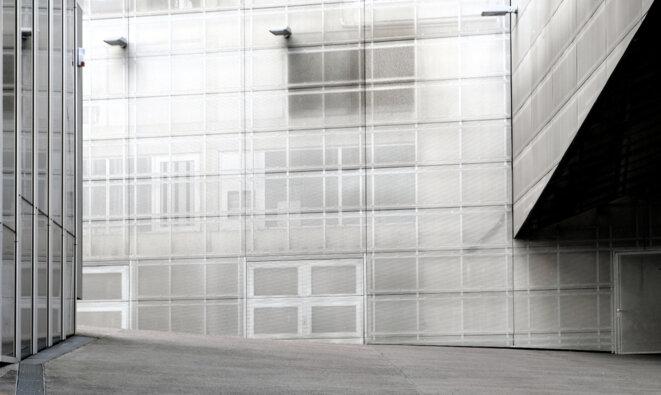
Blog suivi par 8 abonnés
Le blog de Berliner Gazette

À propos du blog
Berliner Gazette (BG) is a nonprofit and nonpartisan team of journalists, researchers, artists, and coders, experimenting with and analyzing emerging cultural and political practices. Since 1999 we have1…
been publishing berlinergazette.de under a Creative Commons License with more than 1,000 contributors. In dialogue with our international network we create annual projects, exploring the issues at hand not only in the form of text series but also conferences and books. Our latest projects include "Black Box East" (2021), "Silent Works" (2020), "More World" (2019), "Ambient Revolts" (2018), "Signals" (2017), "A Field Guide to the Snowden Files" (2017), "Friendly Fire" (2017), "Tacit Futures" (2016), "UN|COMMONS" (2015), "BQV" (2012), and "McDeutsch" (2006).
-
Black Box East: The “Communist” Borders of the Computer Revolution in the 1980s
Just buy your own computer? Unimaginable in Yugoslavia in the 1980s. Assembling a computer yourself from parts brought back secretly from "visits to the West"? Possible! Technology researcher Darija Medić shows how geeks and hackers shaped a computer DIY culture that launched the digital revolution and, despite the "communist" conditions, never operated entirely outside of capitalism. -
Black Box East: Why all of “Us” are Challenged to Struggle against “Whiteness”
The violence of coloniality, Ana Vilenica and Ivana Pražić argue, is either ignored or not sufficiently understood by white feminists – and thus reproduced in the course of this. Scrutinizing the toxic power structures of coloniality in East Europe at large and Serbia in particular, the two researchers urgently call for a deconstruction of white feminism and a struggle against “whiteness.” -
Black Box East: How Capitalism Erases the Human Costs of Post-1989 Transitions
After the post-1989 shock therapies imposed on “communist” regimes forced countless workers to move to Greece, where they became essential to the country’s economy, Troika’s austerity measures imposed on Greece at the end of the 2000’s forced them out once again. The researcher Tsvetelina Hristova reflects on the consequences. -
Black Box East: The Politics of Avoidable Covid-19 Deaths in Romania
Romania’s Covid-19 related vaccination campaign was successfull at first. But then ‘vaccine skepticism’ began to spread everywhere. Rather than identifying ‘information, education, and communication’ as the cause of this, we need to unpack the country’s social fractures and hollowed-out welfare state, social science researcher and health care expert Sabina Stan claims. -
Black Box East: Towards Turning the Belarus-Poland Border Into a Humanitarian Zone
The strategy of the Polish government did not quite work out: By closing the border area with Belarus, it wanted to establish a place of silent human rights violations. But the population does not go along with this. There are numerous helping hands and people who interfere. The cultural anthropologist and writer Maria Gutowska compiled voices from “the zone.” -
Black Box East: Why Is the 2008 Debt and Housing Crisis Not Over Yet?
Household debt is expanding quite quickly in Eastern Europe and it has become a good form of investment for international actors. In Hungary, for instance, the conditions of debt are quite different compared to the more stable economies of Western Europe and financial actors are speculating on higher and faster returns, as scholar-activist Zsuzsi Pósfai argues in an interview with Sotiris Sideris. -
Black Box East: Towards a Deconstruction of the “Former West” and “New East”
Even decades after the Cold War officially ended, “the East” remains the Other. Yet, the Othering of “the East,” a key ideological instrument of Cold Warfare, has not simply been extended. Instead, Aleksei Borisionok and Olia Sosnovskaya claim, it got a new coat of paint and a new thrust, epitomized by the term “New East.” -
Black Box East: Undoing Borders and Boundaries in Bosnia and Herzegovina
Since the Balkan wars – serving as both a catalyst for the design of the EU and of Bosnia and Herzegovina – complicated notions of borders and boundaries have multiplied. Today, they not only define territories at the outer edges of Non-EU-Eastern Europe but also its citizens and refugees. The activist and feminist thinker hvale tries to excavate strategies of resistance and emanicaption. -
Black Box East: Agroecological Alternatives to Extractivism in Serbia
Food sovereignty might help non-Western states become more independent without destroying the environment along the way. Sounds too good to be true? The environmental journalist Mihajlo Vujasin looks at the case of Serbia and the tender beginnings of a more sustainable agriculture. -
Black Box East: A State of Exceptional Cruelty
The Belarus-Poland border crisis must be understood as an ongoing crisis sparked by the militarization of EU borders. Unsurprisingly, such a dehumanizing context enables the instrumentalization of refugees as “weapons.” The photographer and a researcher Karolina Gembara asks: How to find a way out of this hell? And what is actually happening on the ground?
- Page précédente
- 1
- …
- 5
- 6
- 7
- 8
- 9
- Page suivante


